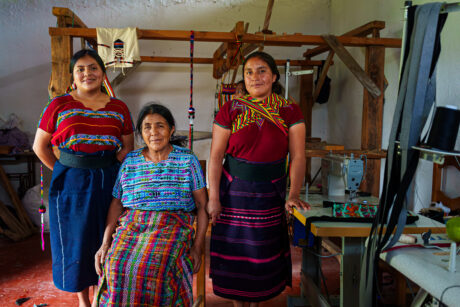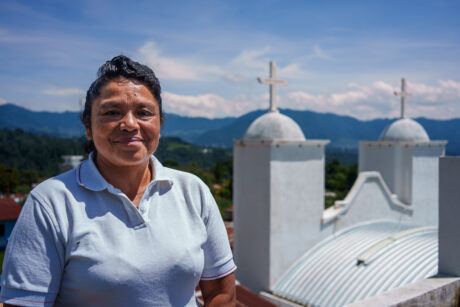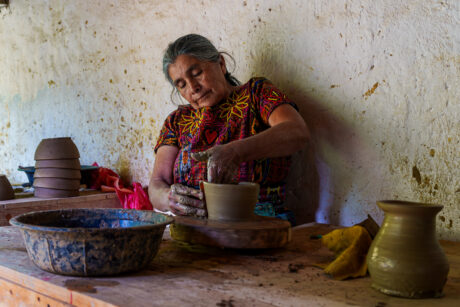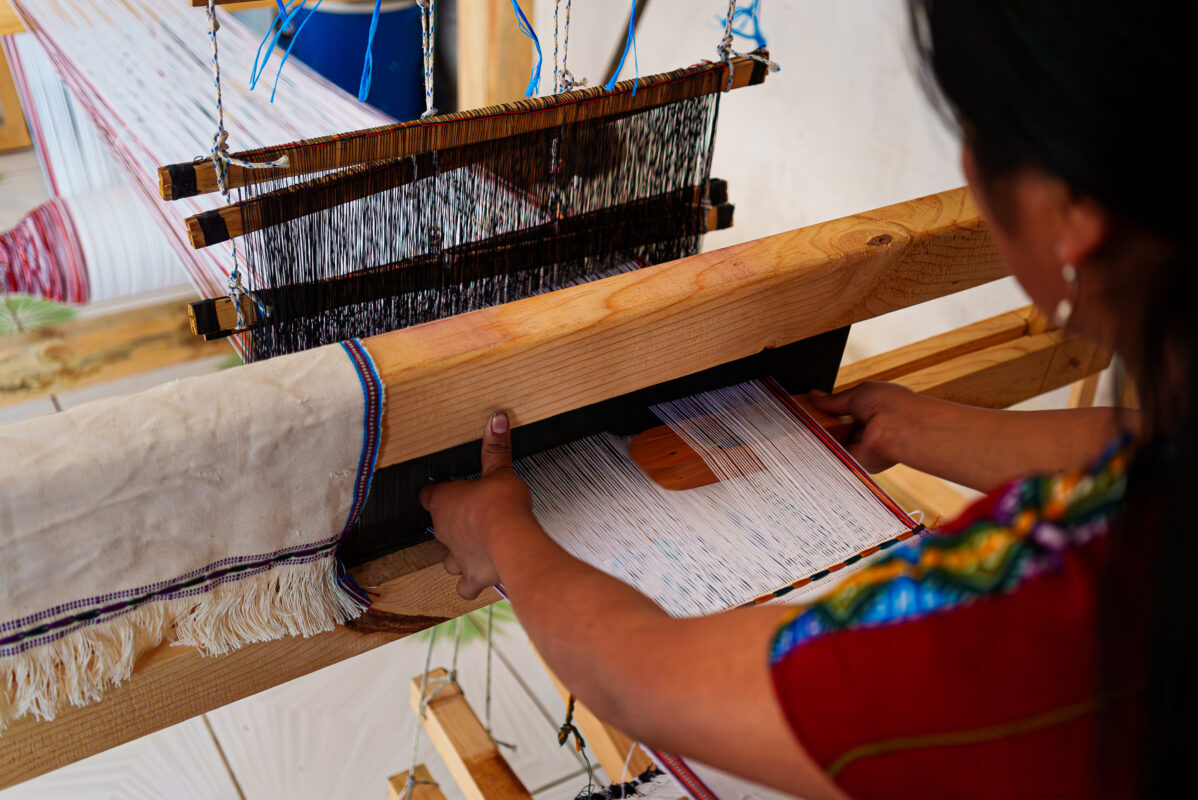Chichicastenango, GuatemalaVibrant cultural roots and ancestral knowledge of its indigenous K’iche’ population run deep in this picturesque, mountain town in Quiché, where it sits among a patchwork of small farmlands in the Western Highlands.
But behind its beautiful and colorful landscapes, the young people of Chichicastenango face significant challenges, including social and emotional isolation, difficultés économiques, depression, limited professional opportunities and pressure to provide for their families. The pandemic exacerbated all these challenges.
The obstacles facing young people aren’t limited to just Chichicastenango. In rural municipalities across the Western Highlands of Guatemala, such as Comitancillo, San Pedro Necta and San Andrés Sajcabajá, young people are struggling to find a sustainable future for themselves and their families.
“My community has been characterized by a lack of unity. We do not know each other beyond our faces,” says Hillary Dayana Pérez Bautista of Huehuetenango. “This disunity creates spaces of marginalization. Donc, if there are more problems, we don’t even realize it. I would like to change that in the future.”
When these challenges meet threats of violence or ongoing conflict embedded in the community’s social fabric, risks compound and young people are much more likely to look for opportunities elsewhere. Many often attempt – and indeed, fail—to make the dangerous journey to the U.S. border, a trend that has compounded in recent years.
Heureusement, there is hope for change.
Bautista is part of a network of some 160 young people throughout the Western Highlands involved with the Youth Voices for Peace Network (connu sous le nom Réseau des jeunes porte-parole pour la paix en espagnol), a group working to create collective spaces of empowerment.
Bringing together young people from across the country from diverse backgrounds, cultures, and traditions—people that normally wouldn’t have the opportunity to interact, Youth Voices for Peace Network then works with these young people to build capacity, develop confidence and connect on issues that have an impact on their future.
It has proven to be transformational for people like Cesar Morales, 27, from Chichicastenango, who joined the Youth Voices for Peace Network in September 2021 and found incredible value in the exchange of ideas and lived experiences with other network members.
“Being part of the network has allowed me to share dynamic spaces and exchange knowledge, experiences, and information with young leaders in other municipalities, many of whom have developed abilities and skills to share both their concerns and proposals to make a difference in their communities," Morales dit.
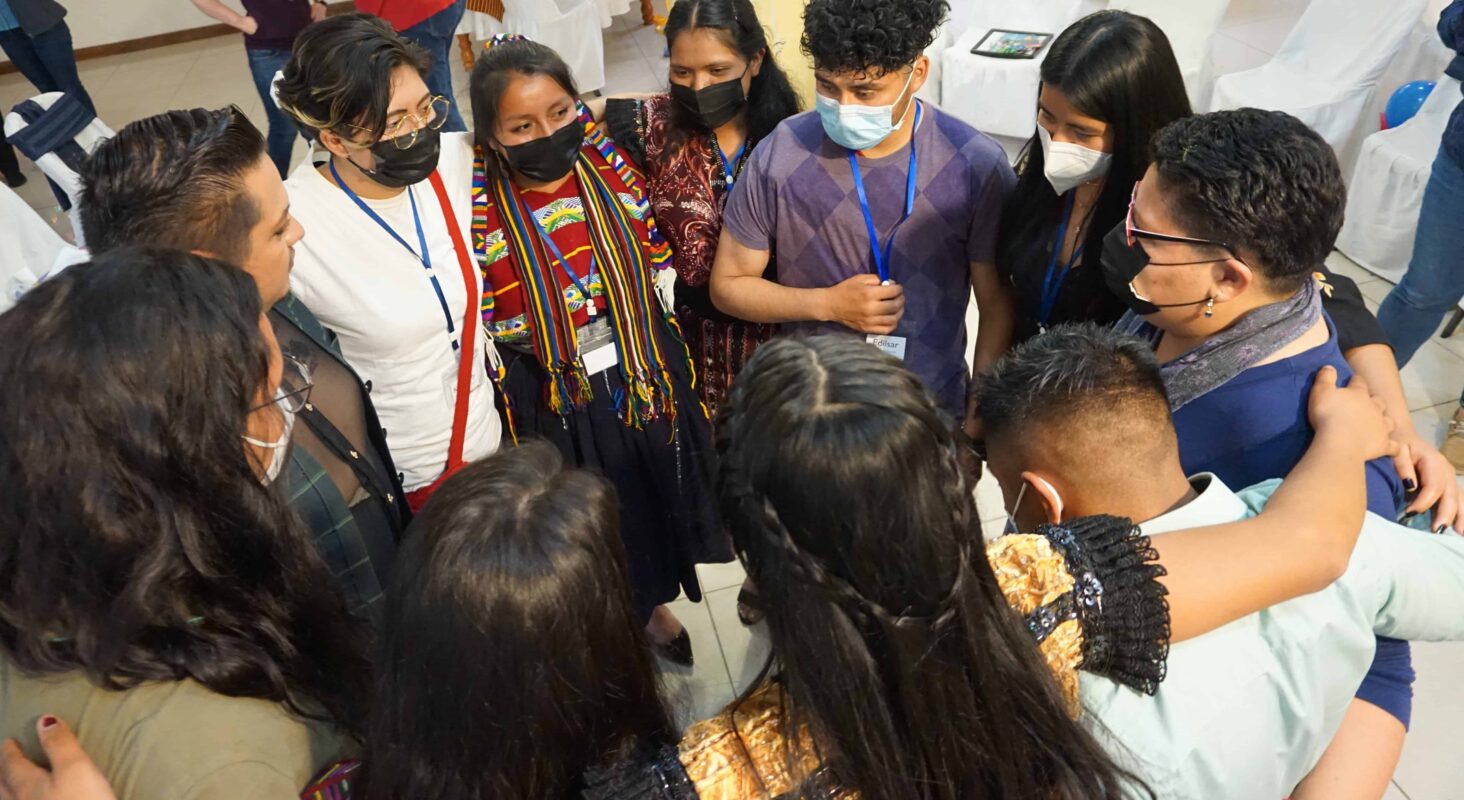
Morales’ feelings about the network are shared by many. At a recent Peace Fair held in Huehuetenango, 10 representatives from Youth Voices for Peace Network met in person for the first time and shared intimate stories with one another about the significant challenges they had overcome during the pandemic. The common denominator in each one of their stories was the feeling of belonging and purpose they found in Youth Voices for Peace.
The youth network has grown its activities with the support from the Peacebuilding Project, ou Tisser la paix en espagnol, a 6.5-year project funded by the U.S. Agency for International Development and implemented by Creative Associates International in partnership with PartnersGlobal and ProPaz. The project is designed to reduce social conflict and violence, et renforcer la cohésion sociale dans les hauts plateaux occidentaux du Guatemala.
With Tejiendo Paz’s support, Youth Voices for Peace Network takes a multifaceted approach to peacebuilding, requiring active participation from network members and including them in dialogues and decision-making, while also working on capacity building. Training topics include conflict transformation, using technology for effective communication, cyber-activism, the risks of irregular migration and different forms of communication, entre autres.
Under most circumstances in Guatemala, the story would stop there, simply because youth don’t have the space or opportunity to put their learnings into action. Heureusement, that is not the case with this network. Using theater and social media as avenues of cultural and physical expression, members of Youth Voices for Peace Network are encouraged to share their acquired knowledge with others in their community.
“Now I feel confident to be able to guide other young people in this process, so that together we can create a positive impact in our communities,” says Gaspar Baltazar, a network member from Totonicapán, explaining how his participation helped him grow as a community leader.
De la même manière, when asked about her participation in the network, Ana Cristina Toma from San Juan Cotzal, Quiche, says the youth network “has been an alternative space where I can inform my community about the realities of social conflict, violence domestique, violence against women and migration, while creating and sharing information in the media in my native indigenous language.”
Anabella Rivera, Executive Director of DEMOS, the Guatemalan organization responsible for organizing and training the network, says that “maintaining itself as a network during the pandemic” was one of the group’s greatest successes to date.
“And this requires more work,” Rivera says. “We need to give them the tools to grow and the knowledge of what it means to be a network. The network is an element of solidarity and unity for the youth. Over the next year, I hope to see a more consolidated network that provides tangible opportunities for transformation and growth.”
Rivera is conscious that youth are confronting more than a pandemic.
“Lack of opportunities is the greatest challenge faced by the youth,” Rivera explains. “They are asking what they will do with their knowledge and skills. This is why technology is so important in the trainings. Being able to effectively express yourself and being able to use technological tools opens the door for employment and educational opportunities. It is also why identifying spaces for civic participation, such as engaging in the electoral process, is so important.”
Morales, Baltazar, Toma and many others now have a sense of agency and influence over what happens in their lives, their communities and their country.
And the network continues to grow. Dans 2022, Youth Voices for Peace Network is poised to increase to 225 membres, expanding into five new municipalities in the Western Highlands.
From Totonicapán to Huehuetenango to Chichicastenango, the Peacebuilding Project and Youth Voices for Peace Network is providing rural youth with tangible skills and opportunities, creating hope for a better future in Guatemala.
“Guatemala needs transformational leaders who are committed to the country and responsible for contributing to transcendental change that will improve the lives of all," Morales dit.
Perhaps Morales was referring to himself in his comments. After participating in the Youth Voices for Peace Network, Morales, like many of his network peers, is now positioned be that leader, able to mediate conflict and build peace for his community and for a prosperous Guatemala.
